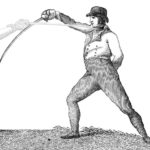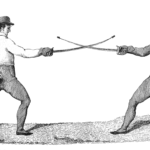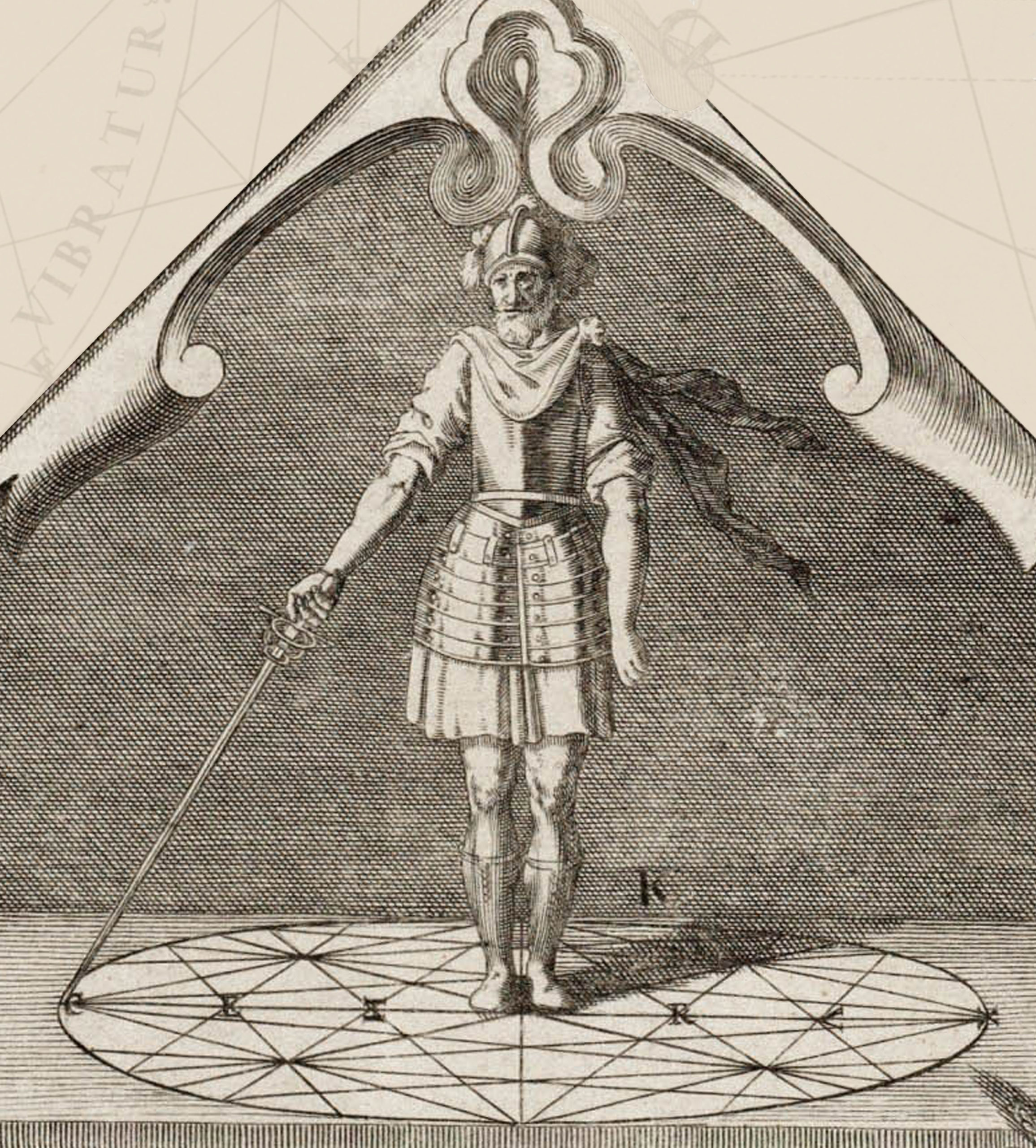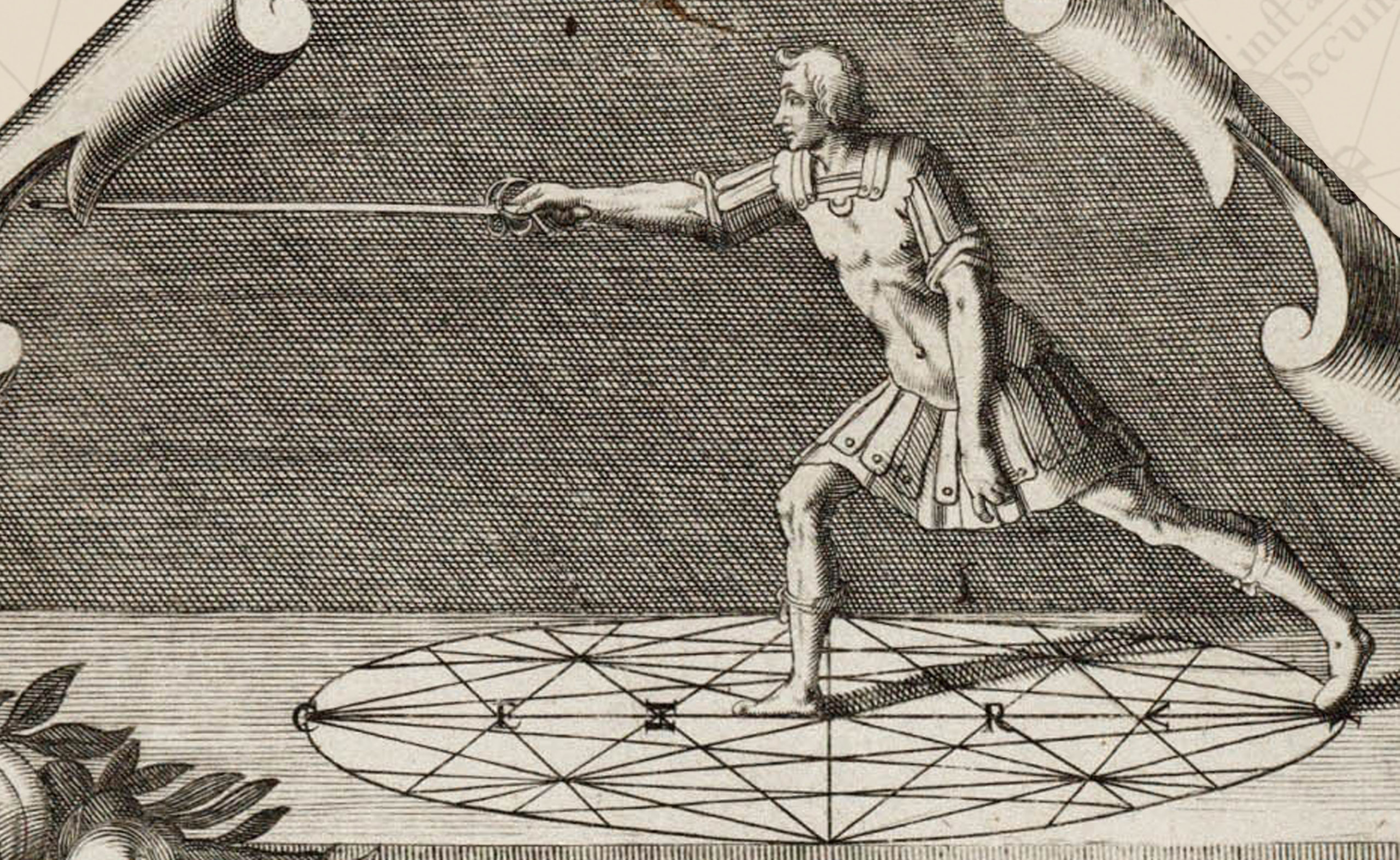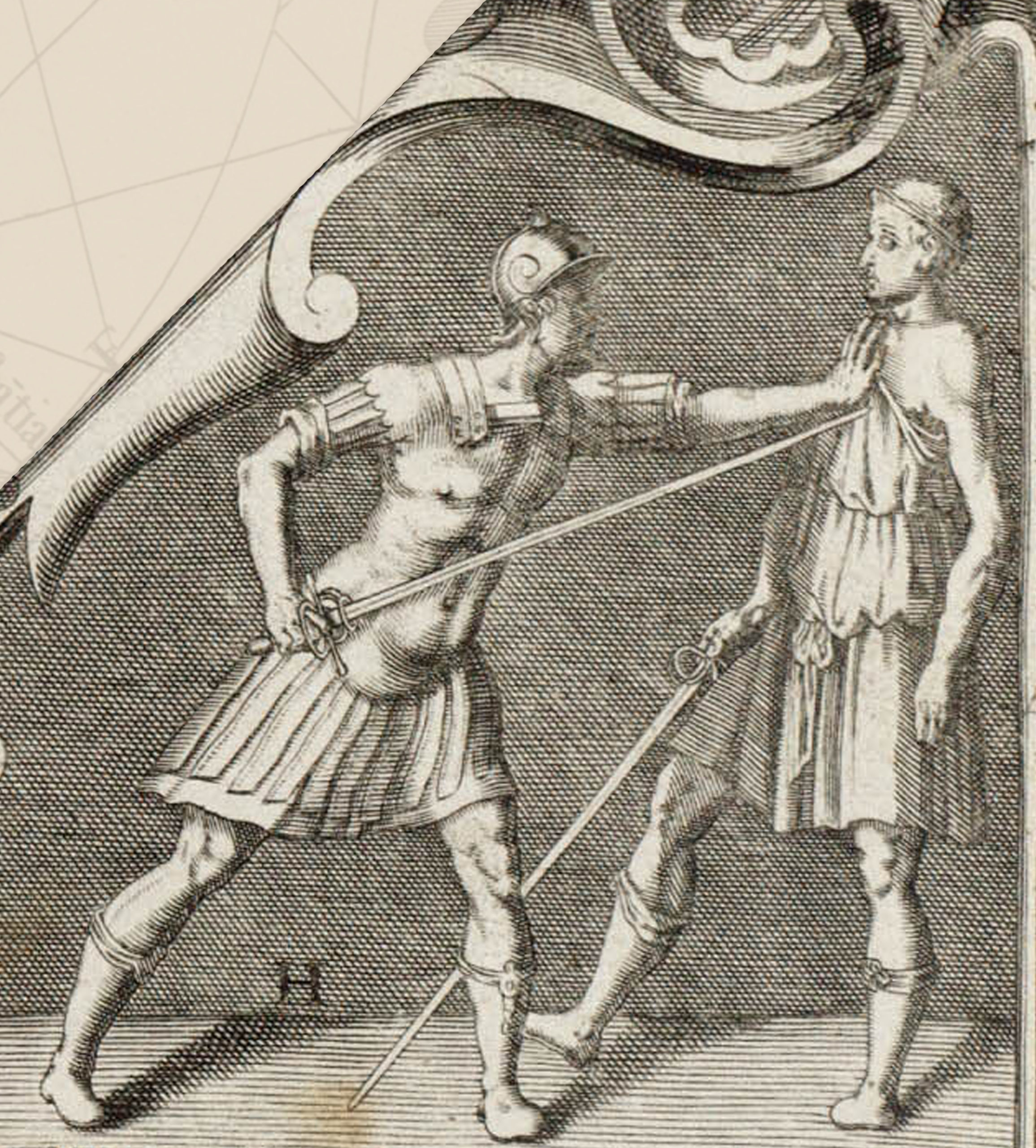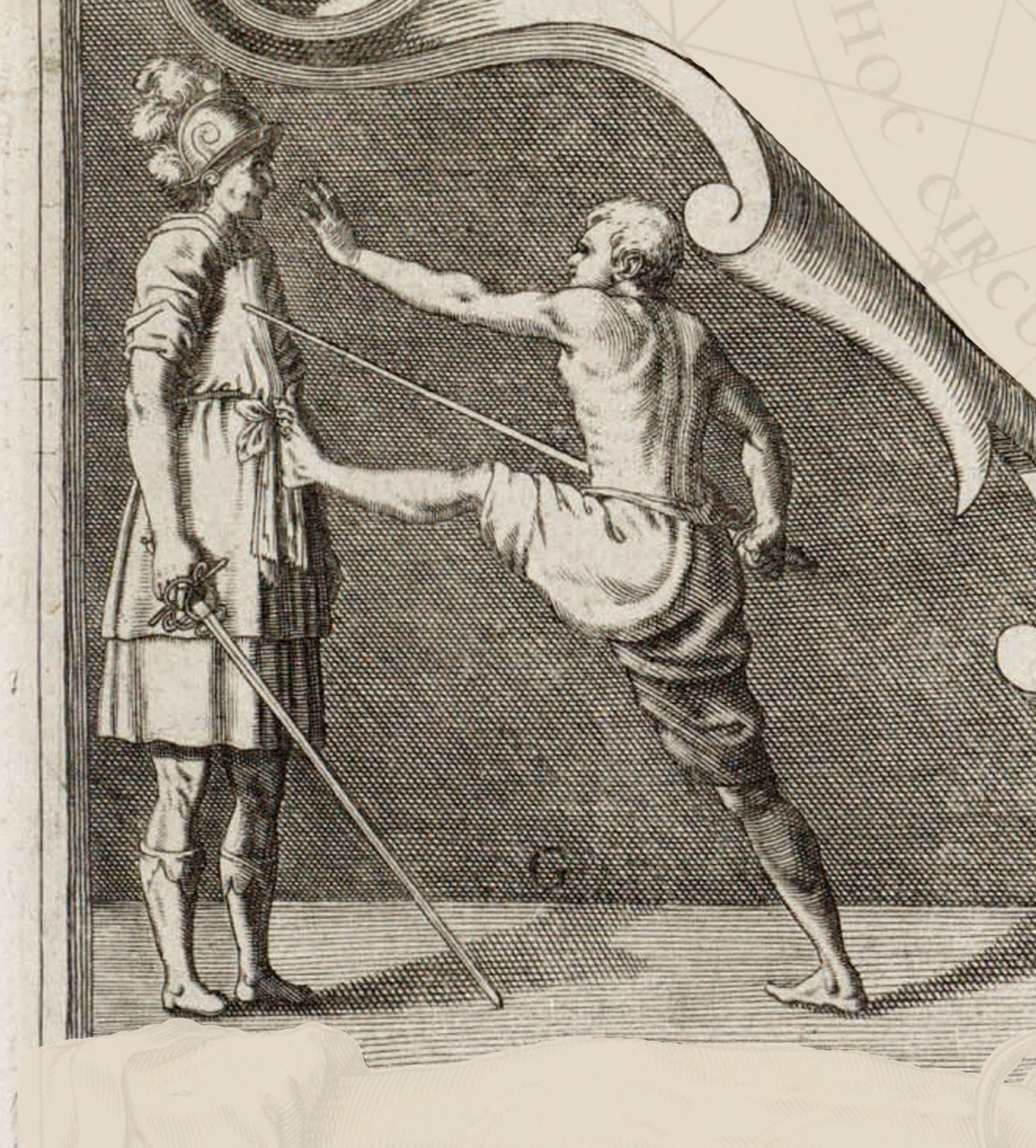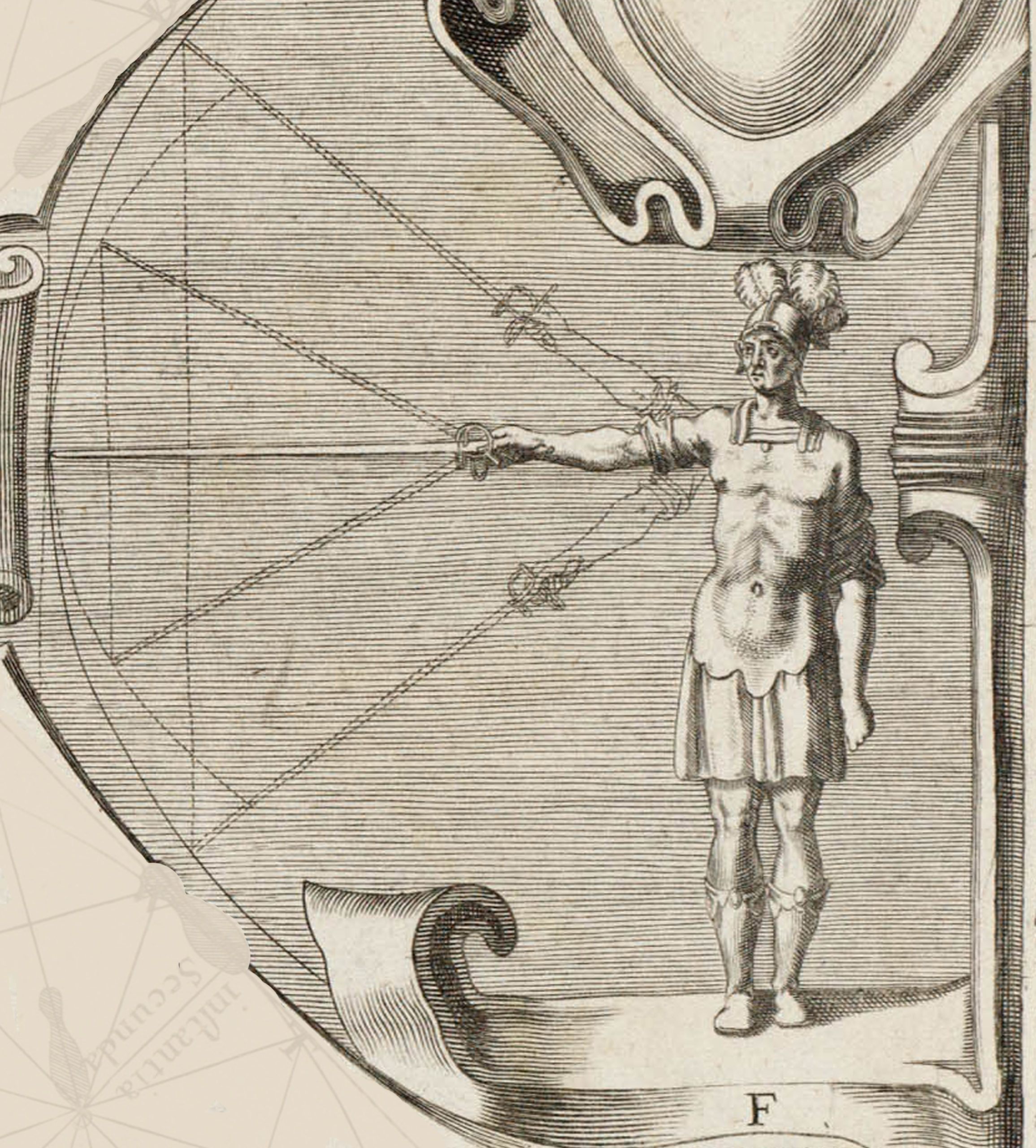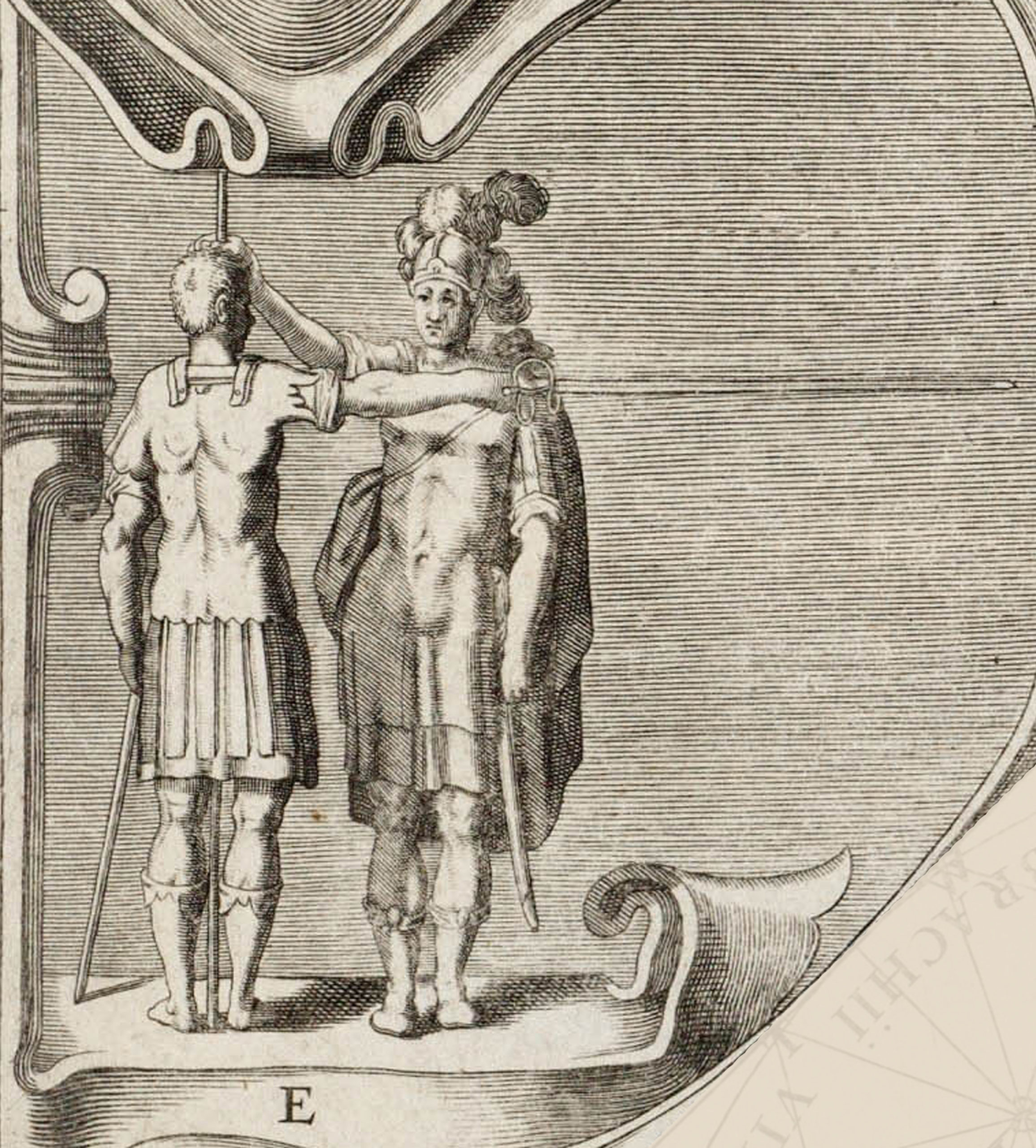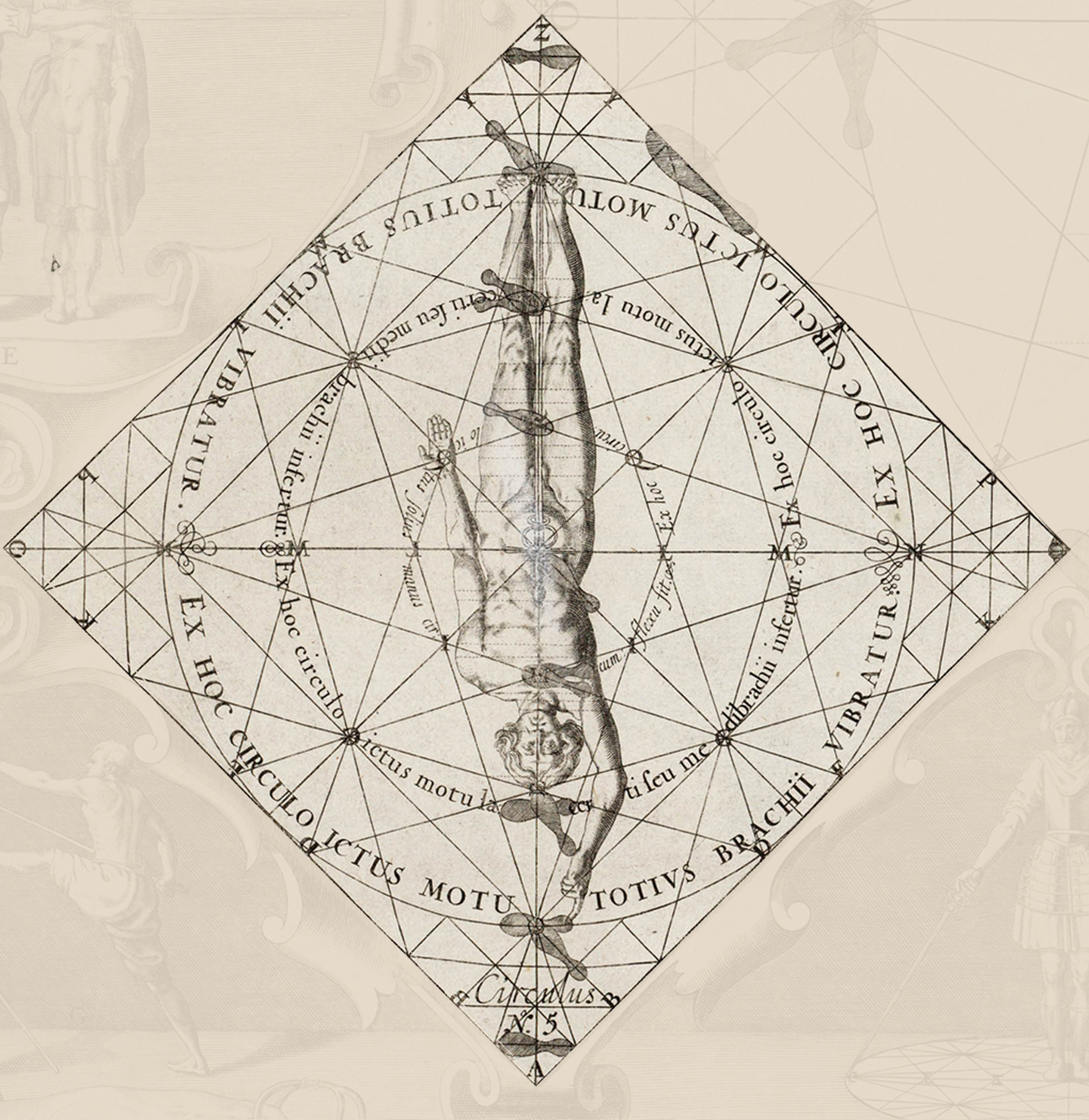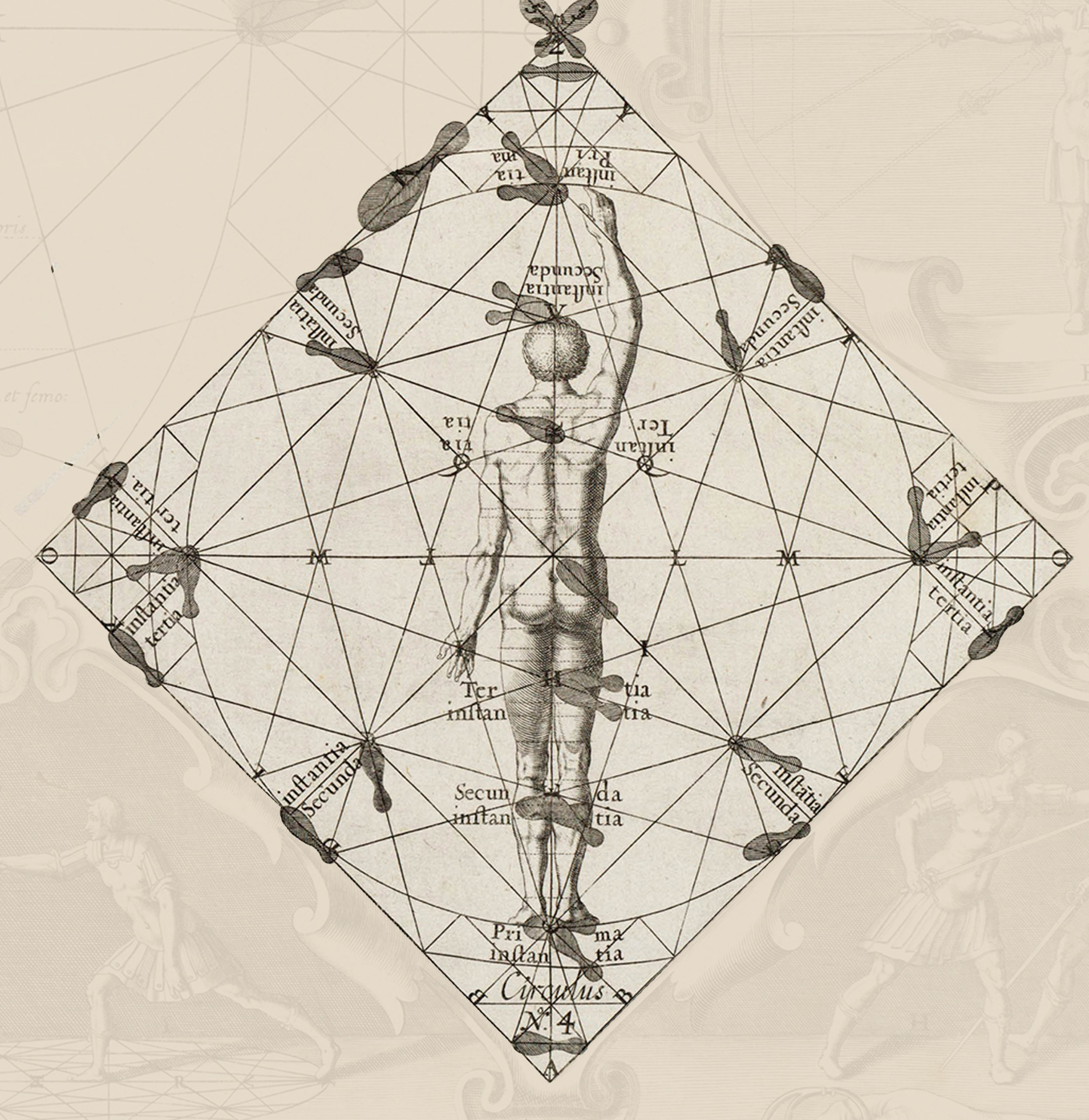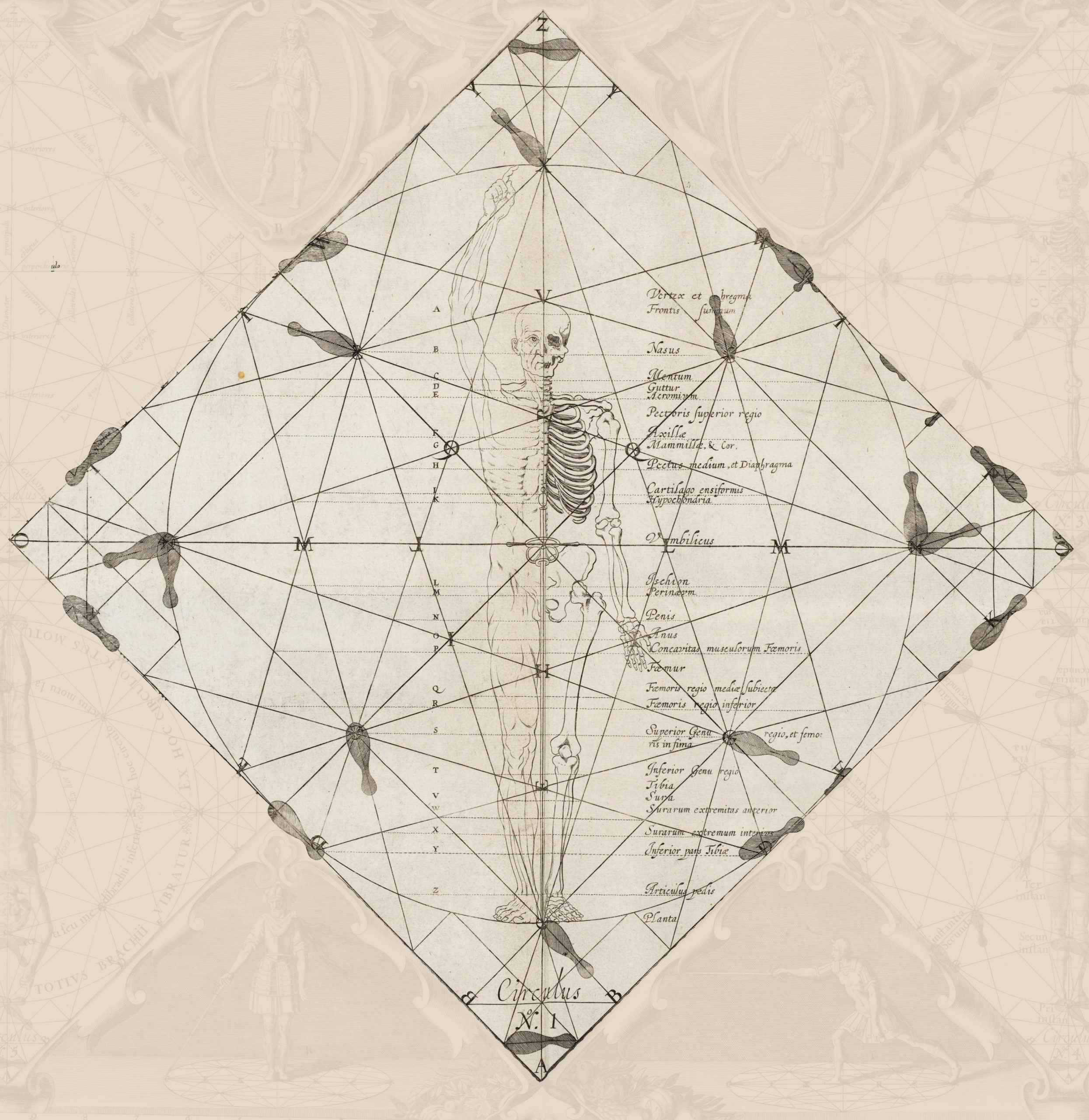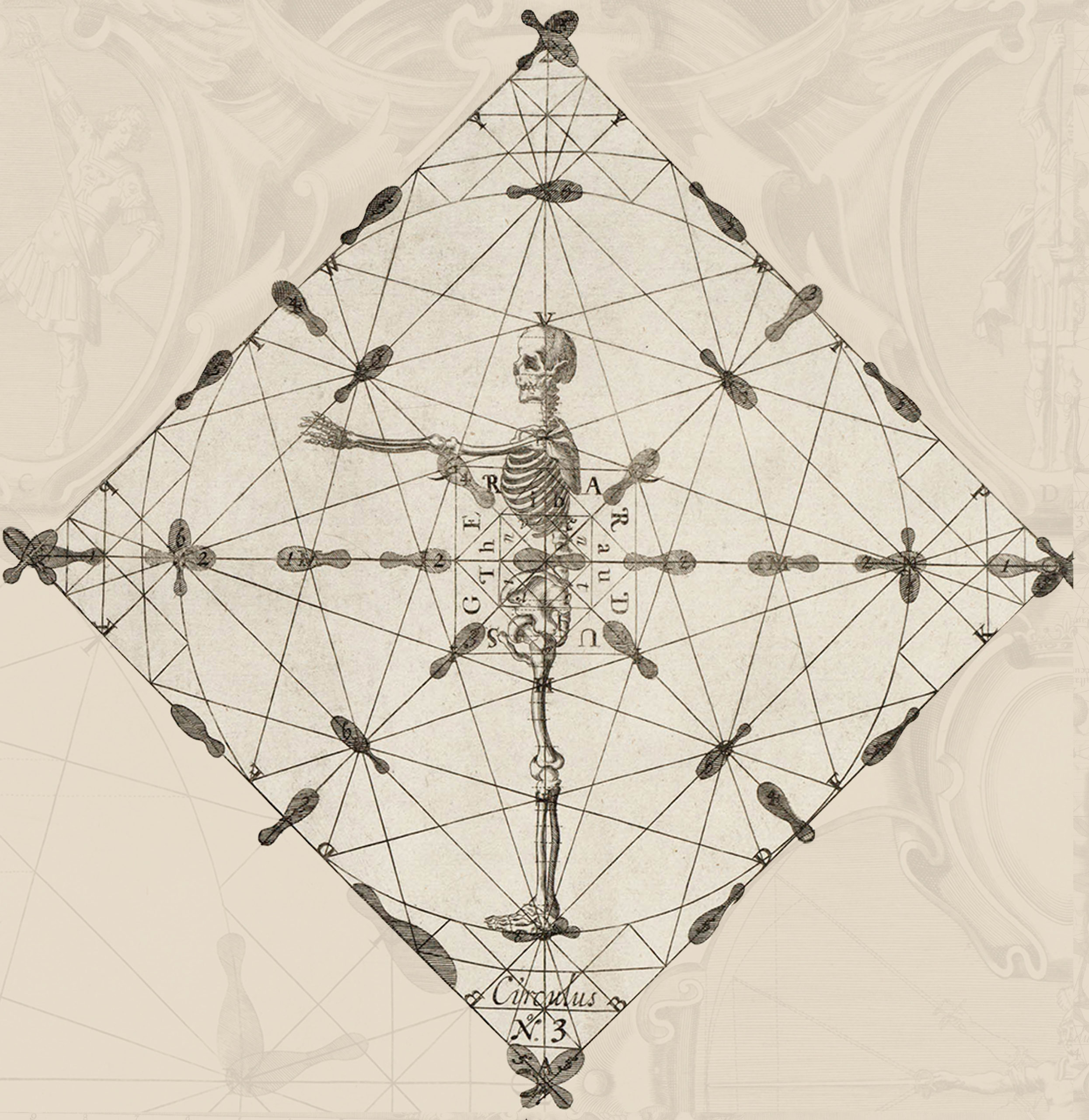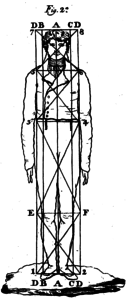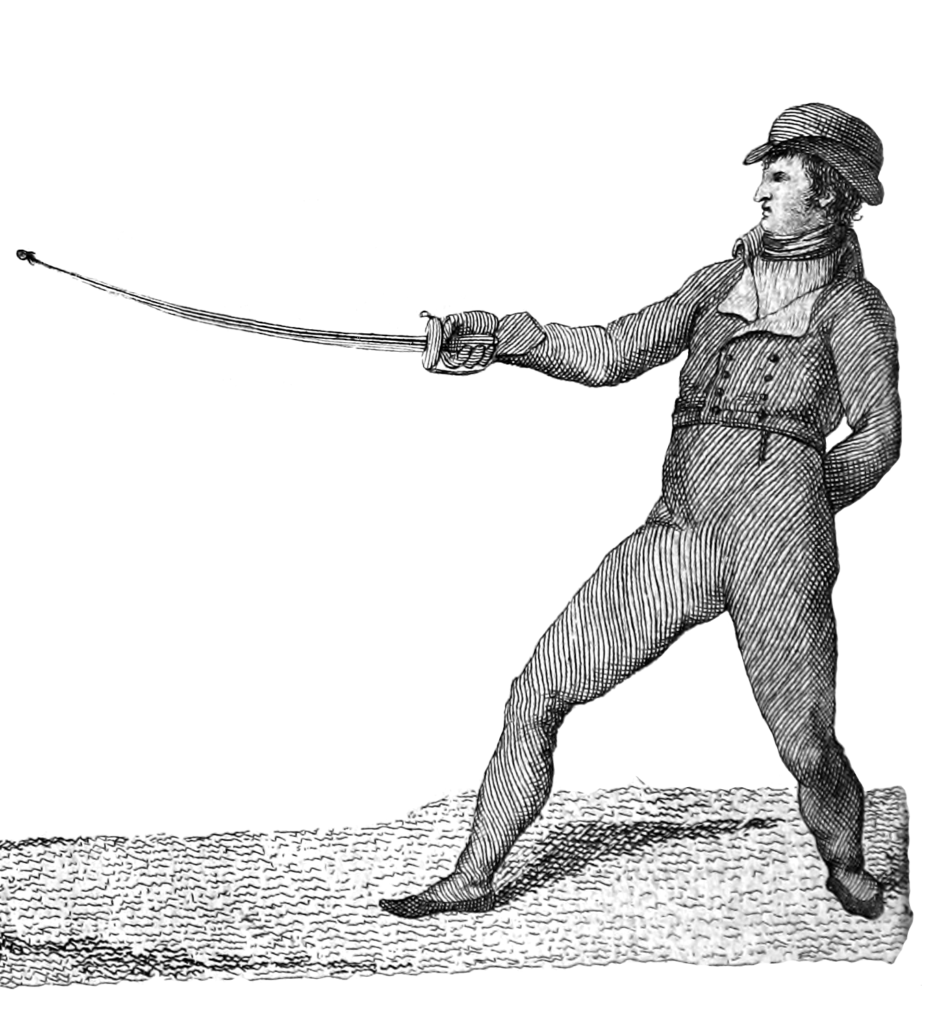266. Nothing is more important in the exercise of weapons, than the conservation of the individual. But, as this most times depends on the offenses of the contrary, it is necessary to give the greatest attention to the methods that facilitate the achievement of our operations, else their difficulty may oppose our intent. In everything said so far, it has been seen that offenses consist of two distinct movements, the one frequently circular in its formation, and the other straight in its execution. Being so, the removals consist of only one, now straight, now circular. It is therefore easier to prevent the achievement of an offense.
267. It is undoubtable that the advantage that I advise has an uncommon recommendation, because by going immediately to make the offense more difficult than the defense, it puts us in a state of retreating from a coward, surprised at the sight of any enemy. But, as a purely defensive fight is not always of the utmost importance, we would have the greatest disgust when it comes to the extermination of a public enemy. We see ourselves needing to undertake for their punishment a doubly laborious path than what they would need to persevere in his their insolence.
268. It is therefore necessary to describe certain operations in which the skill presents an aspect of the contrary character. That is to say, the practice of some offenses that need only one time for their achievement, asking two, and not short, for their repair. They have more of this appreciable advantage, that of being doubly secure, as you will understand in the passages you will read.
269. You may be surprised that, given this recommendation, this genre of offenses has been postponed to after the others. But these demand an exact knowledge of the distances, a practice of presenting with serenity to the enemy, and a firmness of pulse to attack the uncovered point with certainty. They must be preceded by enough exercise to form these good qualities, and this is the reason for not having treated on this before. To do so, in the most intelligible way, I will begin with the simplest and gradually take charge of its complications. The first ones will be those that do not require more disposition other than asserting the common guard.
Chapters:

